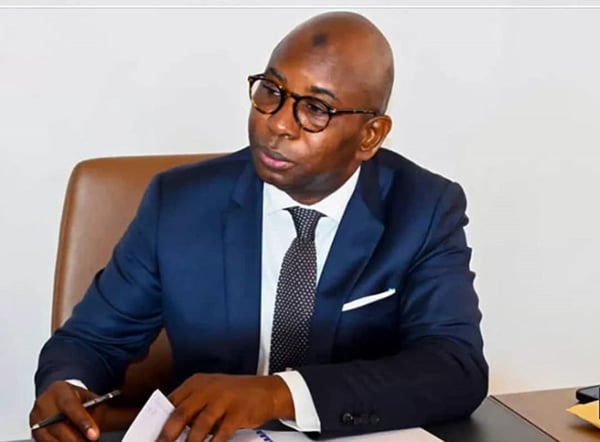Moustapha Guirassy about the debate on veil: « It was not a question of stigmatisation »


The debate on the veil in schools is raging. The Minister for Education began by recalling the context that enabled Prime Minister Ousmane Sonko to raise the issue of « school inclusion » and « social inclusion ». It was also, he added, « a context in which an important issue, that of inclusion, had to be put on the table ».
To the question put to the Prime Minister, « what do you intend to do for the children of the Daaras? », Ousmane Sonko, emphasises Guirassy, replied: « In the same vein, and always consistent with the principle of social and educational inclusion, he came back and said: ‘We must work to ensure that all children, all citizens, find their way into school. Schools are there for all our children. We must support children with disabilities. And, the Minister continued, since he was responding to a daara child, he said: « You absolutely must be integrated into the system ». And, he points out, « when a child is banned from a school because he wears a veil, I don’t think that’s right. Moustapha Guirassy points out that « there was never any question, in the speech, of stigmatising either the Islamic community or the Catholic Christian community ». He says he was personally very surprised to « see the newspapers making an extremely dangerous link » and, he continues, « frankly, by thinking they are attacking the head of government, they are, without knowing it or by doing it knowingly in any case, in fact undermining the foundations of a Nation ».
Series of controversies: Sonko, a speech without a veil
He also said: « And this is the most powerful message from the Head of Government, recalling the constant and firm position of the State. We are talking about a State, a cemented State, a Nation that is cemented by a constitution that puts forward secularism, a secular State, a Republic, a secular Nation, which makes Senegal happy, which makes Senegal unique, which is its distinguishing mark, which makes us envied everywhere today, it is our dear Constitution. »
[themoneytizer id= »124208-2″]
For the Minister of Education, it is necessary « to recall the importance of the Constitution, to recall also the importance of the citizen, which would mean that in reality, Ousmane Sonko is in the process of protecting not only the daara child, but also the child who carries the Cross. If we listen to him very carefully, the head of government is saying that even in a so-called Muslim school, as long as the educational project is republican and answers to the Ministry of National Education, we cannot refuse access to a child who wears the Cross or sacred beads. That’s the message ».
Read the column – The art of diverting public debate with counter-fires
Mr Guirassy finds it « pitiable » that « afterwards we hear some people talking about the Church. No, it’s not the Church that has spoken out here, it’s politicians who have spoken out here, it’s citizens who are perhaps thirsty for visibility or perhaps simply in a certain logic, but really, it’s an extraordinary gratuity on the part of some who are dangerously in the process of evoking, provoking and putting forward ideas that are not good for our society ». The Minister for Education added: « The Prime Minister has instructed us to submit all the internal regulations of the various schools to the test of the higher regulation, which is the Constitution. In order to obtain a licence to practise, the internal regulations are one of the documents you have to provide, and in the legal system they cannot be higher than the Constitution. In the legal system, there is the Constitution, which binds everything, and then there are the internal regulations, which cannot have provisions that go against the Constitution.
Just yesterday (Saturday), recalled Moustapha Guirassy, « the Prime Minister said to me: I wasn’t even talking to Catholics, I was even talking to Muslims who, in a Muslim school, might be tempted to exclude a Muslim child or a Muslim girl who wasn’t wearing the veil ». And even for that, he says, « the school would not have the right to do so ». « We know them, we recognise them and, frankly, I would simply say as Jesus said: ‘Oh my Lord, forgive them, it’s because they don’t know' ».
By Cheikh CAMARA / Correspondant

